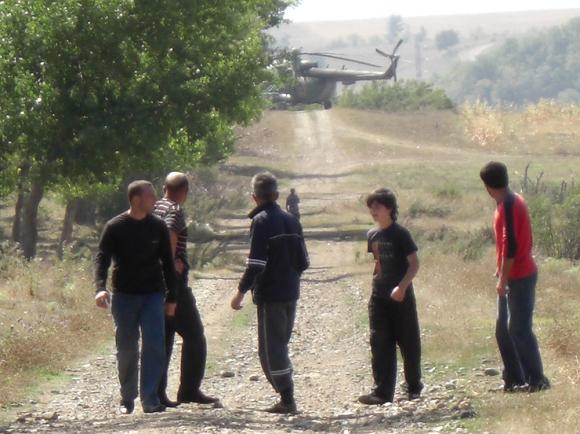“The decision gives hope there will be justice in Georgia. Moreover, impunity has been a persistent feature of the many brutal post-Soviet armed conflicts. An ICC investigation in Georgia could be a game-changer in the region”, Engesland continues.
Large-scale hostilities broke out in Georgia on 7 August 2008 when government troops launched an attack on the breakaway republic of South Ossetia. In response, Russia invaded and occupied a large part of the Georgia. According to the prosecutor’s request, an “estimated 13,400 to 18,500 ethnic Georgians were forcibly displaced from South Ossetia and the 20km buffer zone” established by Russian forces in what could amount to a crime against humanity.
A peace treaty was signed on 14 August. While most of those who were internally displaced or fled during the conflict were able to return to their homes, the expulsion of Georgians from villages in South Ossetia appears to be permanent.
Many organizations and journalists documented international crimes in South Ossetia and Georgia. After initially collecting evidence on what appeared to be war crimes and crimes against humanity during and after the war, together with Georgian partners, the Norwegian Helsinki Committee (NHC) later documented the lack of efficient investigations in Georgia and Russia.
By surveying witnesses to and victims of grave crimes, as well as the sites where crimes were committed, the NHC concluded that genuine investigations were not carried out by national justice authorities, in spite of what Georgian and Russian prosecutors claimed.
From 2010 to 2014, the NHC published four reports on the lack of investigations, and made numerous appeals to relevant justice authorities, including the Office of the Prosecutor of the ICC (OTP) in The Hague.
“With this decision by the Prosecutor, we feel that we have been listened to,” says Secretary General Engesland. “Fatou Bensouda has made a milestone decision, and hopefully the Pre-Trial Chamber will agree to her detailed and soundly reasoned request. If so, it will be the ICC’s first investigation in Europe, and the first outside Africa. That would be the right move, for impunity should not be tolerated anywhere. We call on both Georgia and Russia to assist the ICC if an investigation is opened.”
Georgia deposited its instrument of ratification to the Rome Statute, the International Criminal Court’s founding treaty, on 5 September 2003. The ICC Prosecutor announced the preliminary examination of the Situation in Georgia on 14 August 2008.
The ICC will only open an investigation if serious crimes are believed to have taken place and if local justice authorities are unable or unwilling to investigate the crimes. The request by the OTP is thus a sign that the patience is ended with regard to Georgia’s and Russia’s attempts at investigating possible crimes.
While it appears that forces under Russian control carried out the majority and the most severe crimes, both sides committed crimes. The ICC policy is to target senior commanders. In principle, both nations’ leaders, then Presidents Mikheil Saakashvili of Georgia and Dmitry Medvedev of the Russian Federation, could be indicted.
“While Georgia today appears to be first in line of countries outside of Africa to be investigated by the ICC,” says Engesland, “Ukraine has just accepted ICC jurisdiction over core international crimes committed during the armed conflict that started in the winter of 2014. An ICC investigation would be a signal that impunity can no longer be taken for granted in a region where those presiding over armed conflicts have faced few consequences other than political dividends.”
